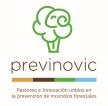
VinGO Operational Group: Project for the identification, enhancement, and international marketing of minority grape varieties
- Type Operational group
- Status Filled
- Execution 2023 -2025
- Assigned Budget 566.298,51 €
- Scope Supraautonómico
- Autonomous community Cantabria; Castilla y León; País Vasco
- Main source of financing CAP 2014-2020
- Project website https://www.variedadesminoritarias.es/grupo-operativo-vingo/
A project that seeks innovative solutions to develop viticultural management models aimed at promoting and highlighting minority grape varieties. It does so based on three pillars: the identification and classification of raw materials through the creation of a digital catalogue; the enhancement of these varieties as a solution to mitigate the effects of climate change on viticulture; and, finally, the promotion of the marketing of wines made with these varieties by creating quality labels that reflect their uniqueness and origin.
The globalization of the wine sector has led to a homogenization of grape varieties worldwide, limiting their cultivation to a small number of varieties (Vitis vinifera L.). The loss of plant material is a major problem in most wine-growing regions, jeopardizing the conservation of the rich wine-growing genetic heritage.
Wine consumption trends have been changing recently. The consumption of moderate-quality wines continues to decline, accompanied by an increase in the production of unique wines, perceived by consumers as higher-quality wines. One way to achieve this differentiation is related to the plant material chosen. The vine variety used gives the wine a distinct personality and its own characteristics. Due to the significant limitation on the use of native varieties in the various Designations of Origin and consumer demand for wines with greater personality and quality, it is necessary to conduct specific studies aimed at characterizing the oenological potential and quality of newly identified vine genotypes or minority varieties that, although still present among crops, are threatened or in danger of extinction.
El Hato y el Garabato is an iconic winery for its minority varieties. Located in an area with great potential for these varieties, it has managed not only to find its place in the production of these wines, but also to innovate in the most traditional tasks of vineyard management, applied traditional viticulture, and unique creations. Its experience stems from the personal background of its founders: two entrepreneurs who have participated in the development and execution of numerous regional, national, and international projects and maintain an active exchange program for young winemakers, inviting someone each year to participate in the grape harvest. Their personal history of travel and experiences allows them to launch pioneering initiatives in the Arribes winemaking process, experimenting and seeking innovation in the products they offer. They have extensive experience developing wine tourism programs and feel a deep connection that, combined with their global experience, makes the winery the perfect blend of tradition and innovation.
Bodega 202 is a modern winery with a vision for the future. Innovation and sustainability are part of its DNA. It has a team with excellent project management skills. The following team members will actively participate in the VinGO project:
Luis Güemes is the Technical Director, Head of Viticulture, and Winemaker. He holds a degree in Agricultural Engineering (UPM) and a Master's degree in Enology and Viticulture (UPM). He also holds a Sommelier degree from the Madrid Chamber of Commerce and a Master's degree in Foreign Trade (Madrid Chamber of Commerce - Juan Carlos I University).
Marta Ortiz-Arce Vizcarro is the Head of Sustainability and Marketing. She holds a degree in Forestry Engineering (UPM), a Master's degree in Organic Agriculture (Wageningen University, the Netherlands), and an expert in Wine Marketing, Wine Tourism, and Gastronomy (Basque Culinary Center - Mondragón University), as well as a WSET3 (Wine & Spirit Education Trust).
The winemaker at Bodega 3 Ases worked for over 10 years at ITACYL identifying and cataloging rare varieties in Castile and León. He has a strong connection with these grape varieties and is deeply interested in making wines with them. Limited by the Denomination of Origin where it is located, the winery participates in several projects to produce some of its wines with rare varieties, although in practice they do not bear the Ribera del Duero DO identification.
Given its innovative nature and its participation in numerous vineyard and soil research and improvement projects, its role in the project is determined by its ability to develop training activities in the field of vines, which improve the training of people living in rural areas. The winery's role in the project is determined by its ability to develop training activities in the field of vines.
The Liébana Local Action Group has been supporting the creation, development, and improvement of sustainable entrepreneurship projects located in this area of Cantabria for several years. Liébana is a traditional olive-oil region, and therefore, a region of pomace production. However, in recent years, new business projects related to wine production, or as a complement to pomace production, have been established. Or, they have revived existing native vineyards that had previously been neglected. The Local Action Group has supported and promoted the creation of a quality brand, Vinos de Liébana, a protected geographical indication (PGI), which designates the local wines of the wine-growing region that encompasses the municipalities of Potes, Pesagüero, Cabezón de Liébana, Camaleño, Cillorigo de Liébana, and Vega de Liébana, located in the autonomous community of Cantabria, Spain. In it we find minority varieties that are being used in the production of low-production wines in this area.
The Liébana Local Action Group is a regional ally thanks to its participation in the development and implementation of a quality brand such as Vino de Liébana, which recognizes and supports the native varieties of the Liébana region.
The Provincial Council of Ávila has been committed to viticulture, its development, and promotion for years, and this commitment is reflected in its General Budget. It has participated in numerous European projects related to job creation in the province of Ávila, improving employability, and developing rural production centers equipped with the most innovative materials. Ávila is a province with a long winemaking tradition, which may not have enjoyed as much market demand as other existing Denominations, but it does have extensive vineyards of identified minority varieties that are of great interest to the wine market.
The Arribes Wine Route actively participates in the tourism committees of the Provincial Council of Zamora and the Provincial Council of Salamanca, collaborating on studies characterizing minority varieties conducted in the area by ITACYL. Together with Iberdrola, it is designing a study for the implementation of innovative and sustainable mobility systems in rural areas. As a collaborating entity, it participates in various studies on wine tourism in Spain and, in 2021, participated in a tourism promotion program run by the Chamber of Commerce of Zamora to open business markets in Ukraine and Belgium.
It has extensive experience developing training programs for the ongoing development of its members in fields as diverse as new technologies and their application to rural services, product positioning in a digital market, the creation of sustainable business models linked to the territory, and the marketing of services in general.
- A technical protocol for managing minority varieties with potential for improvement has been established, allowing for a reduction of up to 10% in alcohol and a lower pH. Controlled vinifications were carried out in three phases (young wine, medium- and long-term aging), and the results were analyzed with tasting panels and analytical tests. In addition, the effects of different aging materials, including Quercus Pyrenaica oak barrels, were studied. This protocol facilitates the production of stable, organic wines adapted to current national and international market demand.
- A specialized digital platform has been designed and published containing an updated catalog of minority varieties found in Spain. It includes technical data sheets, tastings, and geological maps that provide a visualization of the distribution and agronomic potential of each variety. This interactive resource serves as a reference and dissemination tool for winegrowers, technicians, researchers, and consumers, promoting the appreciation of neglected varieties and their integration into winemaking innovation projects.
- A detailed diagnosis has been made of the soil and climate conditions of the experimental plots and their interaction with the selected minority varieties. Based on soil analysis, meteorological data, and agronomic performance, areas with the best response to climate change have been identified. This result guides decisions on vineyard management, planning new plantings, and varietal selection, promoting more resilient and efficient viticulture.
- A virtual platform has been implemented with training content on minority varieties, including videos, technical sheets, and a tutored online course. It is aimed at winegrowers, oenologists, and professionals in the agri-food sector. In addition, educational materials accessible to a general audience have been produced. This initiative improves technical training, disseminates knowledge generated by the project, and strengthens the use of digital channels for the transfer of innovation in viticulture.
- A specific marketing plan has been designed for wines made with minority varieties, with a national and international focus. The document includes consumer trend analysis, audience segmentation, positioning tools, and a digital strategy. Promotional actions and collaboration avenues with tour operators and distributors have also been defined. The plan provides a clear roadmap for improving the competitiveness and market presence of these varieties.
A proposal for a digital label has been developed that integrates sustainability, traceability, and organic certification criteria. This informative label can be added to wine bottles to highlight the origin, environmental impact, and responsible practices associated with minority varieties. Its design responds to the new demands of European consumers and allows for transparent communication of the product's added value.- Two internal coordination sessions were held to define the project's communications strategy, including the identification of audiences, key channels, and a timeline of actions. Following these meetings, a comprehensive outreach, marketing, and dissemination plan was developed to guide all activities. A segmented database of key entities (winegrowers, universities, administration, etc.) was created to ensure impact and monitoring of results. This initial organization has been fundamental to the success of external communications and the internal cohesion of the project.
- The official GO VinGO website was created, an active channel with resources, news, and access to the catalog of minority varieties. Five educational videos were developed documenting the work of each partner and the potential of these varieties. Additionally, Instagram and LinkedIn profiles were actively managed, building a community and disseminating specialized content. Three email marketing campaigns were also carried out to publicize progress and results. These actions have ensured continuous and professional visibility of the project throughout its implementation.
- VinGO has been present at three leading wine events, sharing technical advances and strengthening the positioning of minority varieties. In addition, three in-person workshops were held in Castile and León, the Basque Country, and Cantabria to present the project in each region. Physical materials such as roll-ups and dossiers were published to support dissemination. Direct participation has been key to consolidating collaborative networks, generating institutional interest, and bringing the project closer to its natural surroundings.
- Press releases were published in regional and national media to report on milestones and results. Graphic materials such as banners, infographics, and merchandising were designed to facilitate visual identification of the project. In addition, specialized articles were disseminated and information sheets for varieties were developed. These actions have contributed to a solid, cohesive image aligned with the project's values, ensuring a communicative legacy beyond the project's implementation period.
- Three outreach sessions were organized for groups in the wine industry (winegrowers, oenologists, sommeliers, and restaurateurs) and three awareness-raising sessions for the local population. These sessions facilitated direct exchange with stakeholders in the region, allowing the knowledge generated to be transferred to key audiences. The participatory methodology, the use of audiovisual materials, and the partners' testimonials fostered a deep and intimate understanding of the project's objectives and results.
We are a technology-based company specialized in the management and development of treatments using fungi and mushrooms as carriers. We have more than 12 years of experience in the field of natural resource management and its integration with other productive sectors such as the wine industry. Our group is made up of highly qualified individuals with diverse profiles, renowned professionals in taxonomy-mycology, truffle farming, applied mycology, fungal forestry, and the management of forestry and agricultural plantations and crops. They also have extensive experience in R&D, supported by their experience as teaching and research staff at the University of Valladolid (UVa). Our role within the Group is to coordinate and determine technical actions and ensure their proper implementation.
Among the objectives to be developed by ECM are:
- Develop innovative actions to improve the productivity of wine-growing soils using biotechnology techniques that allow the introduction of microorganisms beneficial to vineyards.
- Help improve vineyard productivity by using biological products, fertilizers, and stimulants that increase vine vigor and improve grape yield.
- Obtain more vigorous and resistant plants through mycorrhizal ion of vine plants with fungi and bacteria.
- Develop and promote training and outreach activities in rural areas, related to the project's objectives and the importance of fungi for the improved development and performance of agroforestry areas, such as vineyards.
- Promoting the cultivation of minority grape varieties as an alternative to adapting vine cultivation to climate change through the use of technological and innovative tools.
- Create digital and technological tools that allow for the identification, visibility, georeferencing, consultation, promotion, and management of Spain's minority grape varieties.
- Marketing of minority grape varieties nationally and internationally
- Define a sustainability strategy to reduce the Vingo consortium's emissions and offset its carbon footprint.
- Protocol for managing parameters linked to minority varieties, whose use allows for a reduction in alcohol levels. Lowering pH levels is geared toward achieving innovative productions with high commercial potential.
- Locate areas that favor the conditions of the vine plant and its survival in the face of climate change.
- Digital development of the first online platform for sectoral and multidisciplinary information for professional contact and a virtual classroom for specific training.
- Marketing and commercialization plan for minority grape varieties to promote sales
- Strategic plan for ecological certification, environmental and carbon footprint balance Quality seal design
- Coordinator/entity name: Cowine Association
- Coordinator/entity email: hola@cowine.es
- Asociación ruta del vino de Arribes
- Diputación provincial de Ávila
- Grupo de acción local Liébana
- Asociación Cowine
- ECM Ingeniería ambiental S.L.
- 3 ASES bodegas y viñedos S.L.
- Bodega El hato y el garabato
- Bodega202 SLU
- De rotos y descosidos SC
- USU Turismo Expertise
- Instituto tecnológico agrario de Castilla y León (ITACYL)







